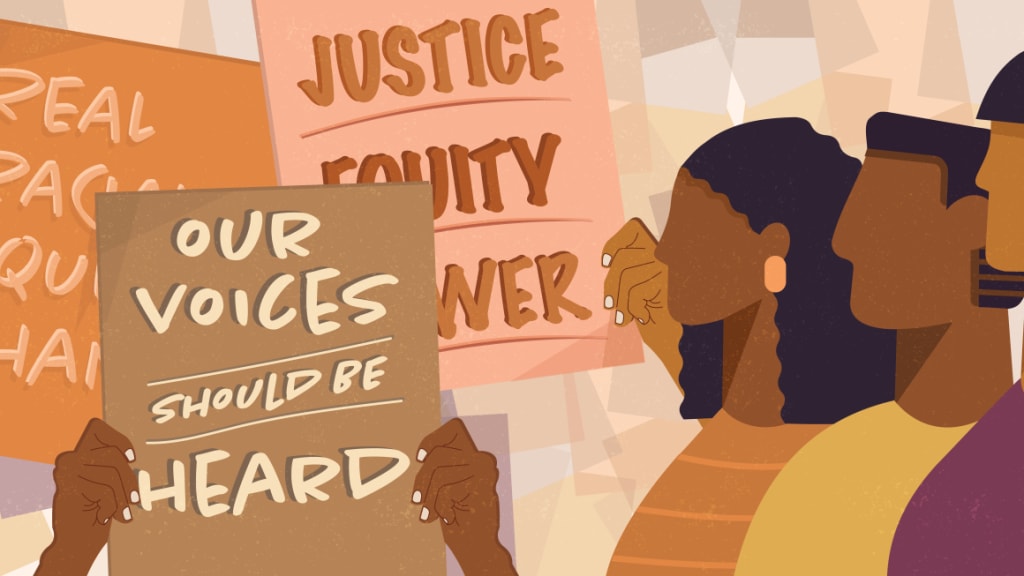The impact of social justice protests on the economy and businesses.
https://youtu.be/3eIDgKWKizA

In recent years, social justice protests have become a common occurrence across the world. These protests are driven by concerns about a range of social justice issues such as racial and gender inequality, police brutality, climate change, and economic inequality. While protests have played a critical role in bringing attention to these issues, they have also had a significant impact on the economy and businesses. This article will explore the impact of social justice protests on the economy and businesses.
The impact of social justice protests on the economy is significant. One of the most notable impacts is the cost of these protests. Protests often require significant resources to organize and execute, which can lead to significant costs for local governments and businesses. In some cases, these costs can reach millions of dollars. These costs can include overtime pay for police officers, damages to public and private property, lost productivity, and additional security measures.
Furthermore, social justice protests can also have an impact on consumer behavior. Consumers are more likely to support businesses that align with their values and beliefs. As a result, businesses that are seen as being on the "wrong side" of social justice issues may suffer financially. This can include boycotts, decreased sales, and negative publicity.
On the other hand, businesses that support social justice causes may benefit financially. For example, Ben & Jerry's, an ice cream company known for its social justice activism, has seen increased sales following its public support for issues such as Black Lives Matter and LGBTQ+ rights. Similarly, Patagonia, an outdoor clothing and gear company known for its environmental activism, has also seen increased sales following its public support for environmental causes.
In addition to the impact on individual businesses, social justice protests can also have a broader impact on the economy. For example, protests can lead to disruptions in transportation, trade, and production. In some cases, these disruptions can lead to a decrease in economic activity, particularly in areas where protests are widespread. Additionally, protests can lead to increased political instability, which can have a negative impact on economic growth and stability.
However, protests can also lead to positive economic outcomes. For example, protests can lead to increased political engagement, which can lead to positive policy changes. Additionally, protests can raise awareness about social justice issues, which can lead to changes in consumer behavior and increased demand for socially responsible products and services.
The impact of social justice protests on businesses can also extend beyond the financial realm. Protests can also impact employee morale, recruitment, and retention. For example, employees may feel more engaged and committed to their work if they feel that their employer is committed to social justice causes. Similarly, prospective employees may be more likely to seek out and accept job offers from companies that align with their values and beliefs.
On the other hand, businesses that are seen as being on the "wrong side" of social justice issues may struggle to attract and retain top talent. This can be particularly problematic in industries that are highly competitive and rely on skilled workers. Additionally, protests can lead to increased employee absenteeism and decreased productivity, particularly if employees are personally impacted by the issues being protested.
To mitigate the impact of social justice protests on their businesses, companies can take a range of actions. For example, companies can proactively address social justice issues and communicate their commitment to these issues to their employees and customers. This can include developing diversity and inclusion initiatives, supporting social justice causes through donations and partnerships, and implementing policies that promote equality and fairness.
Furthermore, companies can also develop contingency plans to address disruptions caused by protests. This can include working with local law enforcement to develop plans for managing protests, implementing flexible work arrangements for employees impacted by protests, and developing backup plans for transportation and supply chain disruptions.
In conclusion, social justice protests have a significant impact on the economy and businesses. While protests can lead to increased costs, decreased





Comments
There are no comments for this story
Be the first to respond and start the conversation.